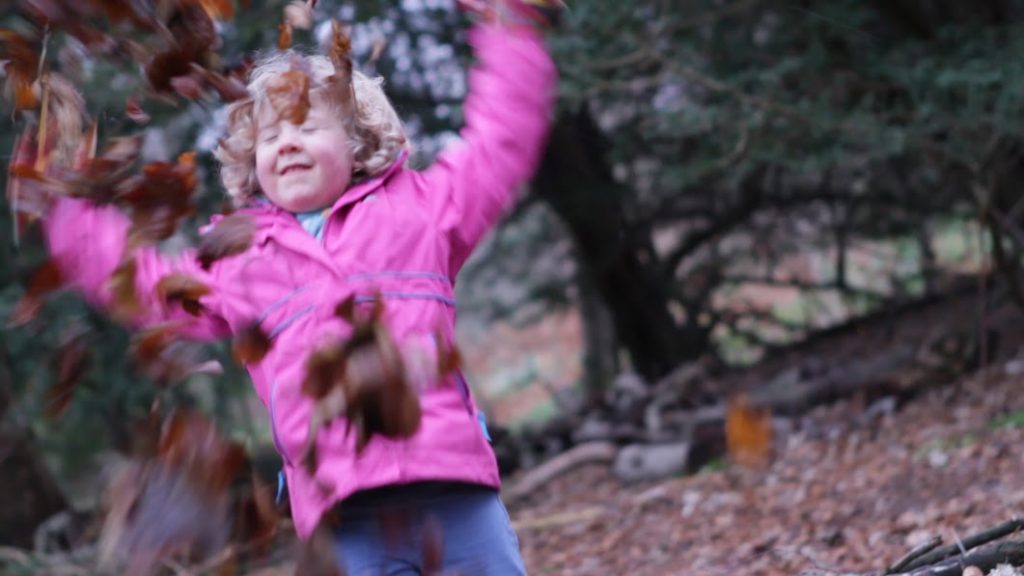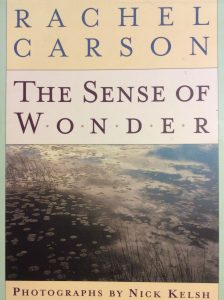 At this time of year parents are frantically trying to decide what to give their children for Christmas. Can I make a suggestion? As first proposed by pioneer conservationist Rachel Carson 60 years ago – give you child an experience they won’t forget, help them to discover the wonder in nature. Better known for her classic work on the threats of pesticides on the environment, Silent Spring, Carson also wrote an essay Help Your Child to Wonder for Woman’s Home Companion magazine in 1956. It was then republished as a book, a year after her death in 1965, under the title A Sense of Wonder and remains in print to this day.
At this time of year parents are frantically trying to decide what to give their children for Christmas. Can I make a suggestion? As first proposed by pioneer conservationist Rachel Carson 60 years ago – give you child an experience they won’t forget, help them to discover the wonder in nature. Better known for her classic work on the threats of pesticides on the environment, Silent Spring, Carson also wrote an essay Help Your Child to Wonder for Woman’s Home Companion magazine in 1956. It was then republished as a book, a year after her death in 1965, under the title A Sense of Wonder and remains in print to this day.
 Based on her experiences on the Maine Coast with her young nephew Roger, the message in this beautifully written piece, is quite simple and, remarkably, it is even more relevant today than when it was first written. Carson describes how young children are naturally curious but need an adult to encourage and support this basic need to explore, explain and wonder at nature. I have reread Carson’s words many times and find it as inspiring as ever, providing the ideal antidote to the commercialisation of childhood that the author could never have dreamed of.
Based on her experiences on the Maine Coast with her young nephew Roger, the message in this beautifully written piece, is quite simple and, remarkably, it is even more relevant today than when it was first written. Carson describes how young children are naturally curious but need an adult to encourage and support this basic need to explore, explain and wonder at nature. I have reread Carson’s words many times and find it as inspiring as ever, providing the ideal antidote to the commercialisation of childhood that the author could never have dreamed of.
A Sense of Wonder speaks to everyone, whether they are parents of small children or not, by reminding us that experiences are more valuable than things, and that close encounters with nature provide the most memorable and satisfying experiences that can be found in the most unexpected places. She promotes the idea that grown-ups should mentor the young, providing them with opportunities – a moon-lit walk along the shore or an adventure to the hidden depths of a forest – offering a rich, sensorial experience that will set the scene for a lifetime of discovering and enjoying nature.
‘If I had influence with the good fairy who is supposed to preside over the christening of all children,’
wrote Carson
‘ I should ask that her gift to each child in the world be a sense of wonder so indestructible that it would last throughout life’.
Carson was clearly able to hold on to that wonder herself into adult-hood and it expresses itself again and again in her prolific writings.
Her curiosity was kept alive by the companionship of the infant Roger and the acute senses of a young child aided her intimate explorations of the world. Our Nature Play project came to a similar conclusion. Young children don’t need to be taught how to explore nature, they just need to be led to a wild spot and they will play in their nature habitat.
To watch children discovering their sense of wonder in nature watch our short film from the Botanics Nature Play: Nature Conservation project
